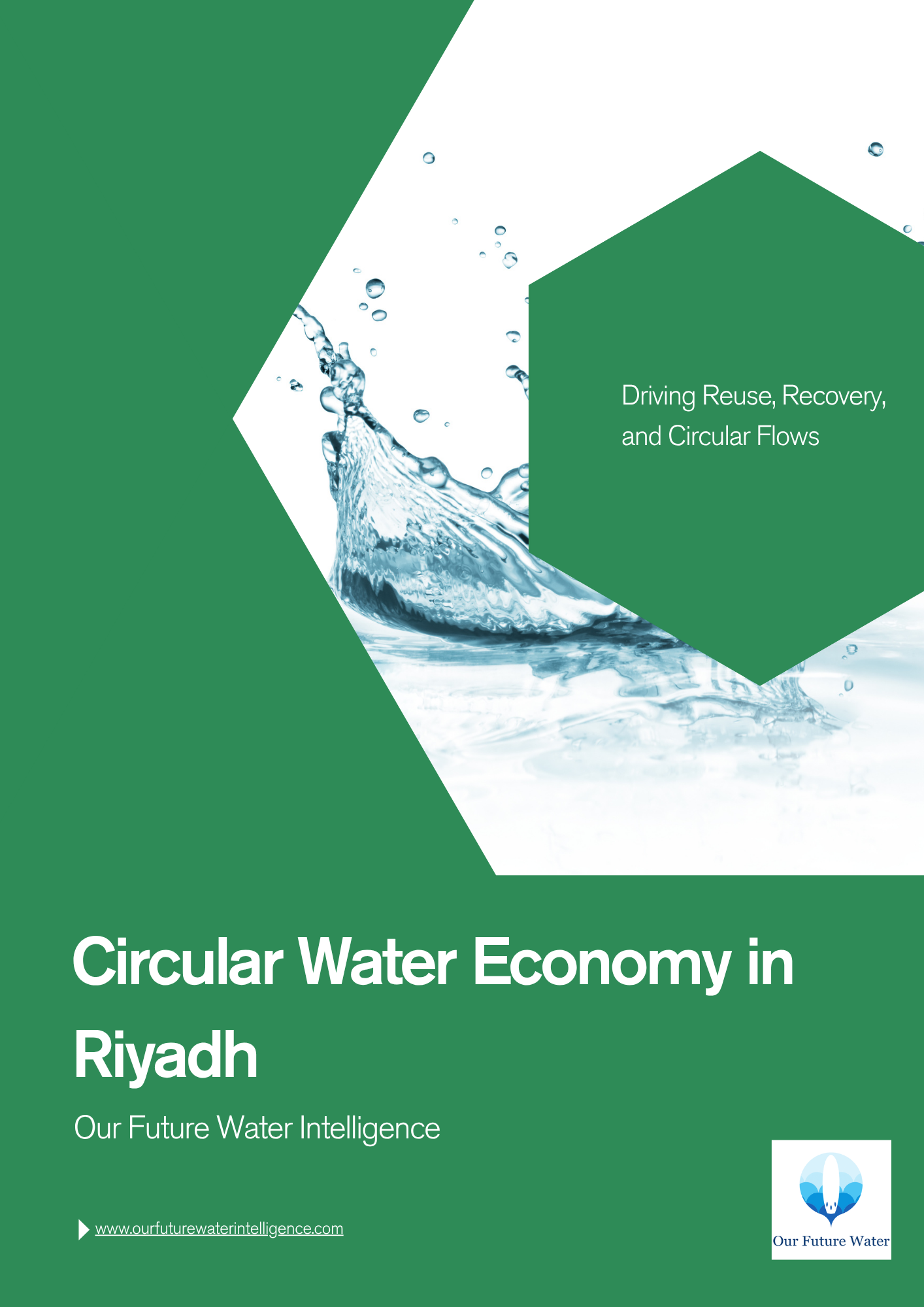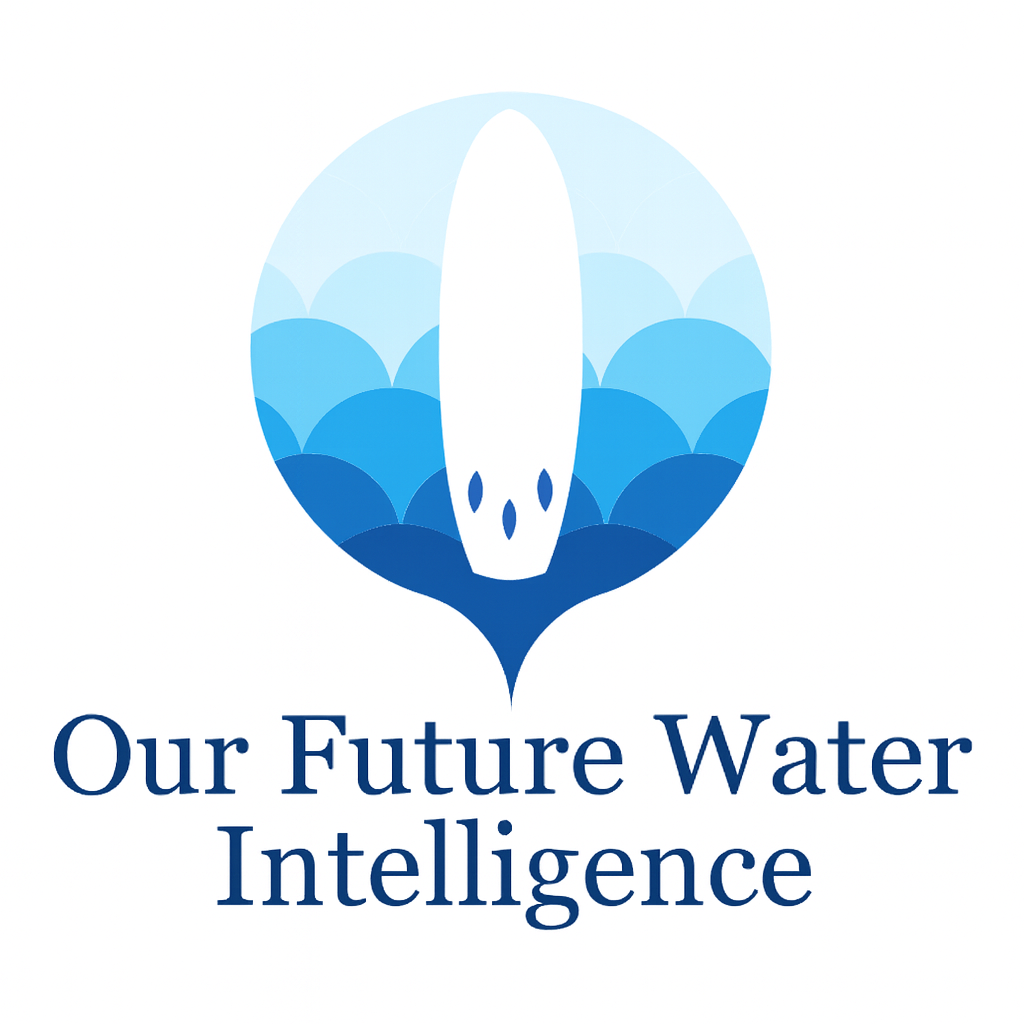
Circular Water Economy in Riyadh
Circular Water Economy in Riyadh
City-scale playbook for transforming Riyadh’s desalination- and groundwater-dependent water system into a Circular Water Economy aligned with Saudi Vision 2030.
Target Audience
- National & City Decision-Makers: Ministries, regulators, and municipal leaders designing policy, tariff, and investment frameworks to deliver Vision 2030 and the National Water Strategy 2030.
- Utility & Project Sponsors: MEWA, NWC, SWPC, SWA, and private operators responsible for desalination, wastewater treatment, reuse networks, and green–blue infrastructure.
- Investors & Advisors: PPP consortia, lenders, and strategic advisors evaluating RO desalination, ISTPs, SSTPs, Green Riyadh, and Wadi rehabilitation as long-term assets in the water–climate transition.
Report Deliverables
- End-to-end mapping of Riyadh’s 5Rs implementation (Reduce, Reuse, Recycle, Recover, Restore) from strategy to on-the-ground projects.
- Quantified assessment of desalination costs, groundwater dependence, NRW, and reuse targets, translated into risk and opportunity narratives for decision-makers.
- Case studies of flagship initiatives, including Green Riyadh, Wadi Hanifa rehabilitation, Kashf leak detection, RO decarbonisation, and PPP desalination–wastewater portfolios.
The Five Strategic Pillars
Operational Excellence & Resilience
Riyadh operates in an environment of extreme aridity, with only around 50–59 millimetres of annual rainfall, yet anchors one of the world’s largest desalination portfolios and is steadily increasing treated wastewater reuse, which reached about 555 million cubic metres in 2023. At the same time, groundwater still provides a large share of natural supply and water withdrawals vastly exceed renewable availability, making efficiency gains, reuse scaling, and restoration of key wadis central to long-term urban and national resilience.
Through SWPC-led Public–Private Partnerships across desalination and wastewater projects, combined with major public spending on Green Riyadh, Wadi Hanifa rehabilitation, and stormwater drainage networks valued at roughly hundreds of millions of dollars, Riyadh is coupling capital deployment with systemic circular water outcomes.
Expert Briefing: FAQs
How is Riyadh’s Circular Water Economy financed?
Large desalination, wastewater, and reuse schemes are primarily delivered through Public–Private Partnerships structured and procured by the Saudi Water Partnership Company, which has attracted more than US$12 billion in private capital, while municipal stormwater systems, Green Riyadh, and wadi rehabilitation are funded through public budgets aligned with Vision 2030. Tariff reforms and efficiency gains are gradually improving cost recovery, particularly from industrial and commercial users, without undermining affordability targets for households.
What defines the Circular Water Economy approach in Riyadh?
Riyadh’s approach applies the full 5Rs framework: Reduce through increasing-block tariffs, smart meters, Kashf-enabled leak repair, and appliance efficiency labels; Reuse via decentralised greywater, industrial non-potable uptake, and rainwater harvesting mandates; Recycle by moving toward 100% wastewater treatment and a 70% reuse rate that feeds projects such as Green Riyadh and Wadi Hanifa; Recover by extracting minerals and chemicals from desalination brine and harnessing biogas and solar power in treatment plants; and Restore by rehabilitating wadis and deploying large-scale urban greening as nature-based infrastructure.
How does digital intelligence improve water performance and security?
Digital intelligence underpins real-time visibility and control across Riyadh’s networks, with widespread deployment of electronic meters, SCADA systems, AI-supported inspection of more than 400 kilometres of drainage infrastructure, and mobile tools such as Kashf connecting users to certified leak-detection services. These capabilities support lower household demand, enable targeted NRW reduction, improve asset reliability, and help ensure that new desalination, reuse, and restoration investments deliver measurable gains in security and efficiency rather than simply expanding linear supply.
Choose options

ARTICLES

Yorkshire Water Nature First urban drainage and wetlands strategy
Yorkshire Water's Water Utility of the Future programme uses a Nature First commitment, wetlands, blue‑green streets, and digital intelligence to cut storm overflows and build climate resilience ac...
Read more
Yorkshire Water Resource Decoupling and Green Energy Transformation
Yorkshire Water is decoupling service from emissions by targeting 40% renewable self-generation, up to 120 MW of solar and expanded biogas-to-biomethane projects, turning key treatment sites into i...
Read more
Yorkshire Water Adaptive Planning and Non-Stationary Climate Resilience
Yorkshire Water is using adaptive planning, the Yorkshire Grid and targeted redundancy projects to manage a non-stationary climate, strengthen drought and power resilience, and protect customers fr...
Read more